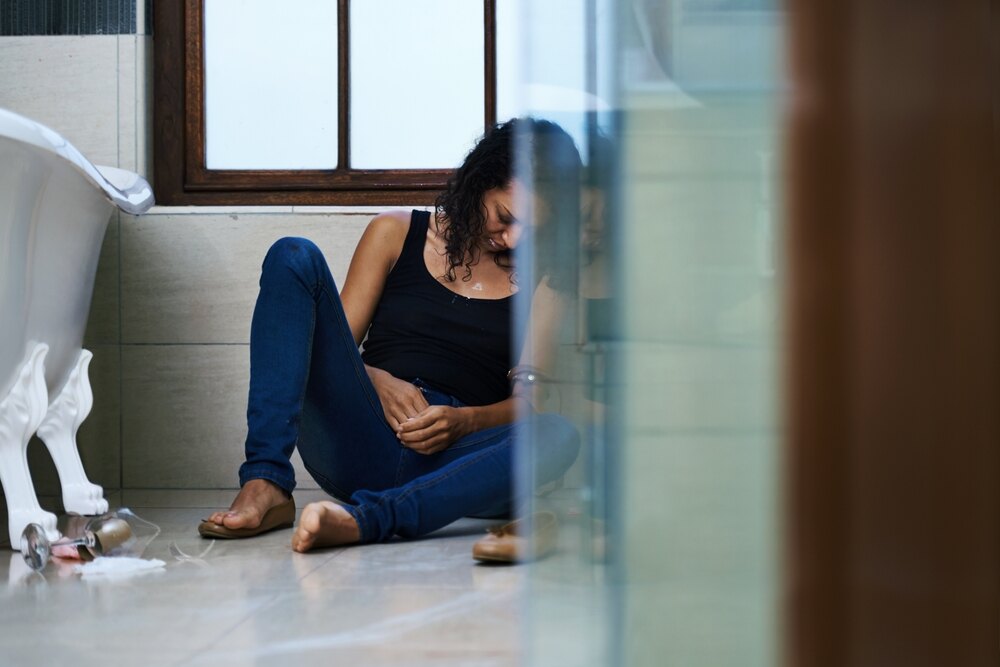Table of Contents
TL;DR:
- Alcohol detox: Acute withdrawal may last a few days to a week, but the full detox process can take weeks or even months.
- Weed detox: Most withdrawal symptoms subside within 3 weeks, though some may linger longer.
- Opioid detox: Acute withdrawal typically lasts 5-7 days, but can extend to 14 days or more for long-acting opioids.
- Benzo detox: The gradual tapering process can take weeks, months, or even years.
- Stimulant detox: Acute withdrawal can last a few days to a week, but fatigue and mood swings can persist for several weeks.
- Medical supervision during detox: keeps you safe and lowers the risk of complications or relapse.
Have you ever wondered, “How long does it take to detox?”
It’s a common question with a complicated answer.
Detoxification, or “detox” for short, is the process of ridding your body of harmful substances. While it’s an important step towards recovery from addiction, the journey isn’t the same for everyone.
How long it takes to detox depends on a variety of factors, including the substance you’re detoxing from, how long and heavily you’ve been using it, your overall health, and even your genetics.
Let’s break down detox timelines for different substances and explore what affects those timelines.
How Long Does It Take to Detox From Alcohol Abuse?
Alcohol can be especially challenging when it comes to detox. Quitting “cold turkey” after heavy and long-term use can be risky, even life-threatening because alcohol withdrawal can cause intense symptoms.
So, how long does it take to detox from alcohol? Here’s a breakdown of the typical timeline:
- Stage 1 (6-12 hours after the last drink): This is where it begins, with mild but noticeable symptoms like anxiety, insomnia, nausea, and headaches. Think of it as your body starting to protest the sudden absence of alcohol.
- Stage 2 (12-48 hours): Symptoms become more intense, including higher anxiety, shaking (tremors), elevated blood pressure, and a rapid heart rate. You might also start to experience seeing or hearing things that aren’t there (hallucinations). During this critical period, having medical supervision is especially important.
- Stage 3 (48-72 hours): In severe cases, delirium tremens (DTs) can develop. This involves severe confusion, agitation, fever, and even seizures. DTs can be fatal if not treated promptly.
Everyone’s body reacts differently, so some people may go through detox faster than others.
Typically, the acute withdrawal phase lasts from a few days to a week. However, the full detox process can take several weeks or even months depending on how much you were drinking.
How Long Does It Take to Detox from Weed?
Compared to alcohol, detoxing from weed is generally a less intense experience. While it can still be uncomfortable, it rarely requires medical intervention for physical withdrawal symptoms.
Common Weed Withdrawal Symptoms
While not life-threatening, these symptoms can be disruptive to daily life:
- Irritability and mood swings
- Anxiety
- Sleep disturbances
- Decreased appetite
- Headaches
- Sweating
- Chills
As always, every person’s detox journey is unique. Factors like the amount of weed used, its potency, and how it was consumed all play a role in determining the timeline.
Most people experience withdrawal symptoms within 24-72 hours after their last use, peaking around the 3-day mark. These symptoms typically subside within 3 weeks, though some lingering effects like insomnia can persist for longer.
Even after the initial physical discomfort of weed withdrawal subsides, studies show that some people may continue to experience lingering psychological effects for up to five weeks.
Detox from Other Drugs
While we’ve focused on alcohol and weed, it’s important to remember that many other substances can lead to dependence and require detoxification. These include:
- Opioids: Heroin, fentanyl, prescription painkillers (like oxycodone and hydrocodone)
- Benzodiazepines (Benzos): Xanax, Valium, Klonopin
- Stimulants: Cocaine, methamphetamine, amphetamines
So, how long does drug detox take?
Detoxing from these substances can be challenging because withdrawal symptoms can be severe, and the timelines for recovery can vary.
Opioid Detox
Opioid withdrawal is often compared to a severe flu. Symptoms usually start 6-30 hours after the last dose and may include:
- Severe muscle aches and spasms
- Nausea, vomiting, and diarrhea
- Restlessness and anxiety
- Trouble sleeping
- Strong cravings for opioids
The acute withdrawal phase for opioids usually lasts about 5-7 days. However, for long-acting opioids, it can extend to 14 days or longer.
Benzodiazepine Detox
Benzo withdrawal needs to be carefully managed due to the risk of serious complications, like seizures. Symptoms usually start 24 hours after the last dose and can include:
- Anxiety and panic attacks
- Insomnia and nightmares
- Tremors and muscle twitching
- Increased heart rate and blood pressure
- In severe cases, seizures and hallucinations
To minimize risks, benzo detox typically involves gradually tapering off the medication under medical supervision. This process can take several weeks, months, or even years depending on the individual and the severity of their dependence.
Stimulant Detox
Stimulant withdrawal is often characterized by a “crash” after the initial high. Symptoms typically begin within a few hours to a few days after the last dose and can include:
- Intense fatigue and exhaustion
- Depression and anxiety
- Agitation and irritability
- Increased appetite and vivid dreams
The physical symptoms of stimulant withdrawal are usually less intense than those of opioid or benzodiazepine withdrawal.
However, the psychological effects can be significant and long-lasting. The acute withdrawal phase typically lasts from a few days to a week, but fatigue and mood swings may continue for several weeks.
The Importance of Professional Help
Detoxing at home might sound appealing, but it’s important to recognize the value of getting professional help.
Safety First
Withdrawal symptoms can be unpredictable and, in some cases, life-threatening. Medical professionals can monitor your vital signs, manage withdrawal symptoms safely, and intervene quickly if complications arise.
Medication Management
Medications can help ease withdrawal symptoms and curb cravings. Doctors can prescribe and adjust these as needed to keep you safe and comfortable.
Emotional Support
Detox isn’t just about the physical side; it’s emotional, too. Therapists and counselors are there to help you through the emotional challenges that come with withdrawal and early recovery.
Reduced Relapse Risk
A structured detox setting limits access to substances and offers a supportive environment, which lowers the chances of relapse during a vulnerable time.
Personalized Treatment
Everyone’s detox journey is different. Professionals can assess your needs and develop a personalized treatment plan to give you the best shot at success.
Take the First Step
If you or someone you care about is struggling with substance abuse, Infinite Recovery is here to support you. Our medical drug detox program offers a safe and compassionate environment to help you through withdrawal and start your path to recovery.
Reach out to us today and take the first step toward a healthier, happier future.

















